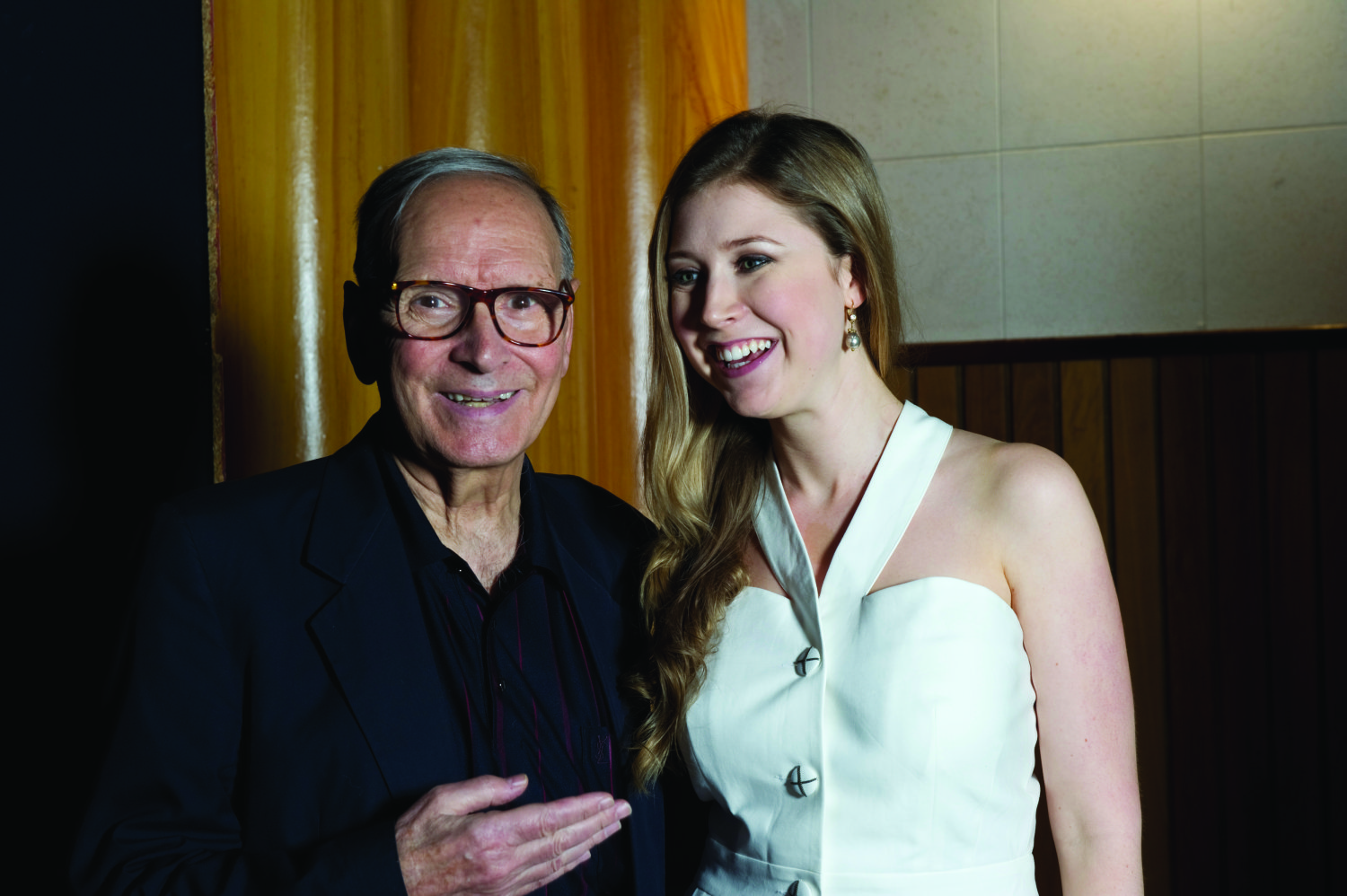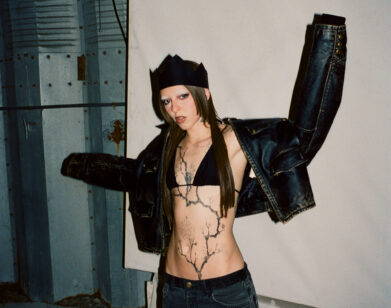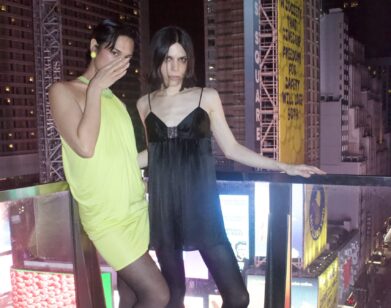Keeping Score with Morricone: Hayley Westenra

HAYLEY WESTENRA (RIGHT) WITH ENNIO MORRICONE
PHOTO COURTESY OF ANDREA LO-PRIORE
Fifteen years ago, Hayley Westenra’s first-grade teacher recognized her student could sing and gave her a role in her end of year production of The Littlest Star. “I was given the role of the star, which was quite appropriate because I was quite small,” says the New Zealand-born, London-based soprano. “From that point, I realized I liked singing.”
That’s a bit of an understatement for a girl who went from busking on the streets of Christchurch to having Ennio Morricone write new compositions for her (while letting her pen lyrics for—and sing them over—some of his most famous arrangements), as he’s done for their new collaborative album, Paradiso, which drops tomorrow.
“When I was busking, I didn’t know that many songs because I was only 11, but I owned this Andrea Boccelli CD so I used a handful of his songs when I was out, and Andrew Lloyd Weber songs like ‘Memory’ from Cats,” recalls Westenra, who used the money she made on the streets to make a demo, which she sold at the town market. Two locally-recorded albums later, she scored a meeting with Costa Pilavachi, then head of Decca Records, that lead to the recording of Pure, which melded Maori tribal sounds with age-old orchestral arrangements to become the fastest-selling classical album—two million-plus copies worldwide—to date.

Four years later, the Maestro invited her to Italy because he liked her voice.
“I found myself in Sicily attending his concert at this beautiful outdoor venue, and then we had breakfast the next day, but nothing came of the meeting,” recalls Westenra. “We kind of just left it at that, and I was just thrilled to have met him.”
Four years after that, she was brainstorming ideas for another new album when she lobbed the idea of collaborating with Morricone for one song. He came back with the suggestion of an entire album, and the project was soon underway, beginning with a meeting at his Rome apartment.
“I was blown away and really nervous,” she says. “But he brought me to the piano, and we sang through some pieces.” Over the next six months, this May-December team recorded at Rome’s Forum Studios. The result is quite stunning, from Westenra’s command performances in Italian to her voicing her own lyrics that hold up under the weight of three of Morricone’s most daunting tracks.
The disc opens with the soul-jarring strings from “Gabriel’s Oboe”, the Maestro’s epic movement from his Oscar nominated score for The Mission, to which Westenra delivers a soaring tale about “whispers in a dream.” From there she gives voice—in English and Italian—to “La Califfa,” the titular song from Morricone’s romantic score to Alberto Bevilaqua’s 1970 masterpiece of the same name, as well as the title song to Giuseppe Tornatore’s Oscar-nominated Malena. Meanwhile, Morricone’s new compositions “Per Natale” and “Lezione Di Musica”—to which Westenra gives a breathtakingly fast rendition of “Do, Re, Mi”—are light as air, but equally flooring.
“His music required me to step out of my comfort zone,” she says, remembering one instance where the composer came into the recording booth with her, directing Westenra’s voice as she sang, much the way Lionel Logue directed King George through his 1939 declaration of war. “That was quite intense. I wasn’t used to that, but it was great for me to forced to go beyond what I thought I could give because his music requires so much emotion.”
After the sessions, however, the mood lightened with pasta and espressos at Morricone’s favorite restaurant, and when she squeezed in moments to keep tabs on the national pastime. “I’m a huge rugby fan,” admits the Cantebury Crusaders fan, who won’t tour for this album until next year. Until then, look for her singing at the finals of the Rugby World Cup in New Zealand at the end of October. “I’m just crossing my fingers the All Blacks make it through. Otherwise, I don’t know what I’ll do.”
PARADISO IS OUT TOMORROW. FOR MORE ON HAYLEY WESTENRA, VISIT HER WEBSITE.






